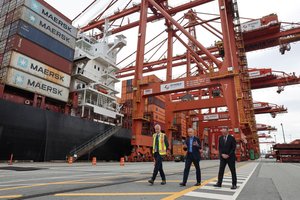Chapter 11 of the North American Free Trade Agreement (NAFTA) deals with investor-state arbitration (ISA), which is a mechanism that allows an investor of a NAFTA member country to pursue legal action against the government of another NAFTA country for allegedly breaching its investment obligations under the treaty. Instead of in national courts, these cases are dealt with behind closed doors by unappointed arbitrators. Some feel that this private process is not ideal and unnecessary because domestic legal systems are robust enough to protect foreign investors. Others view this arbitration system as a beneficial way to depoliticize investment disputes, removing national courts — which could show bias in favour of their own nation — from the equation.
CIGI senior fellows Armand de Mestral and David Schneiderman explain the reasoning behind Chapter 11’s inclusion in the original NAFTA, although they disagree on how to proceed with its renegotiation; one sees the benefits of ISA and encourages further enhancements, while the other believes that Chapter 11 should be repealed. Both, however, agree that it is highly unlikely that Canada, the United States or Mexico will walk away from the agreement entirely.


